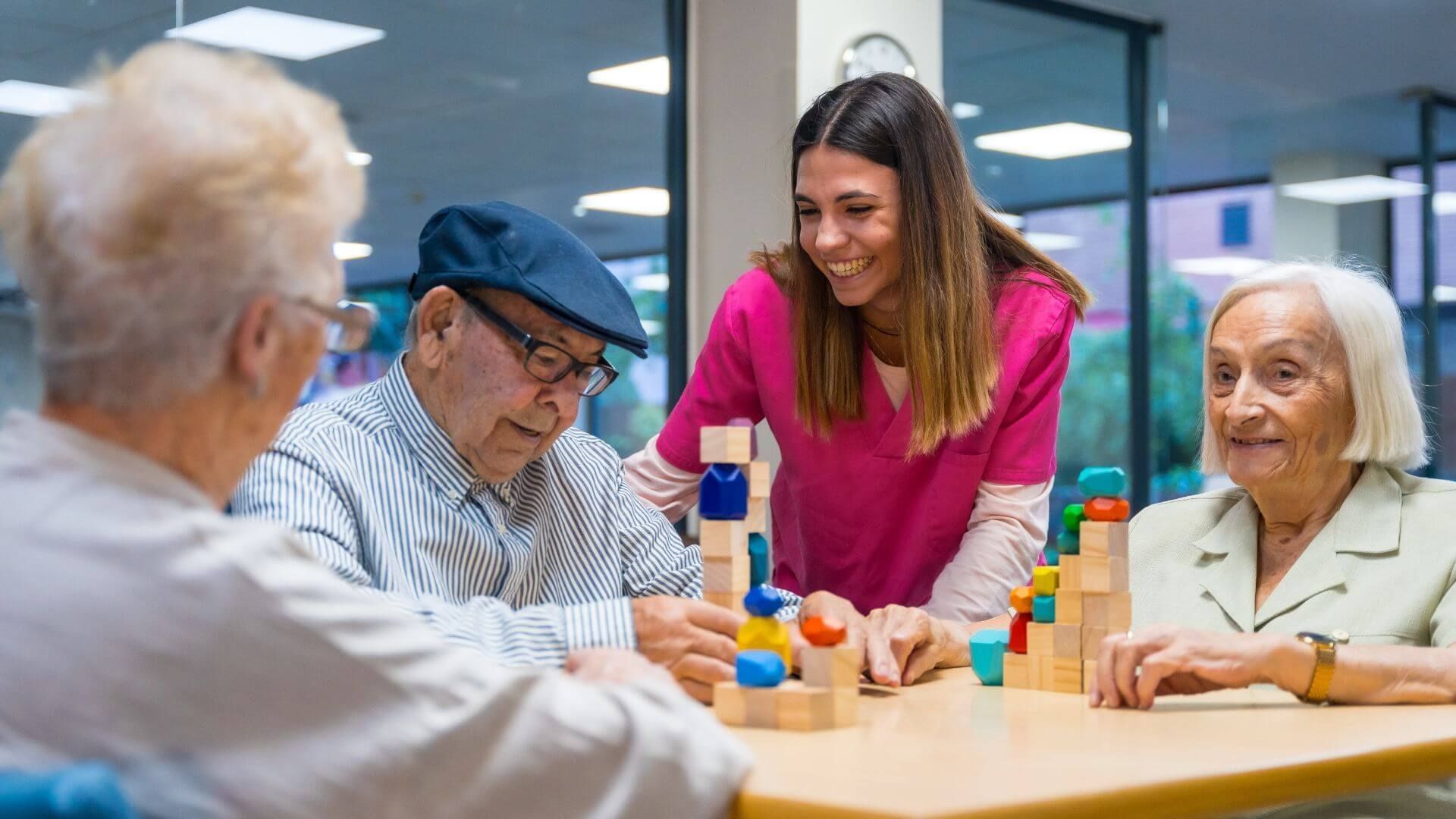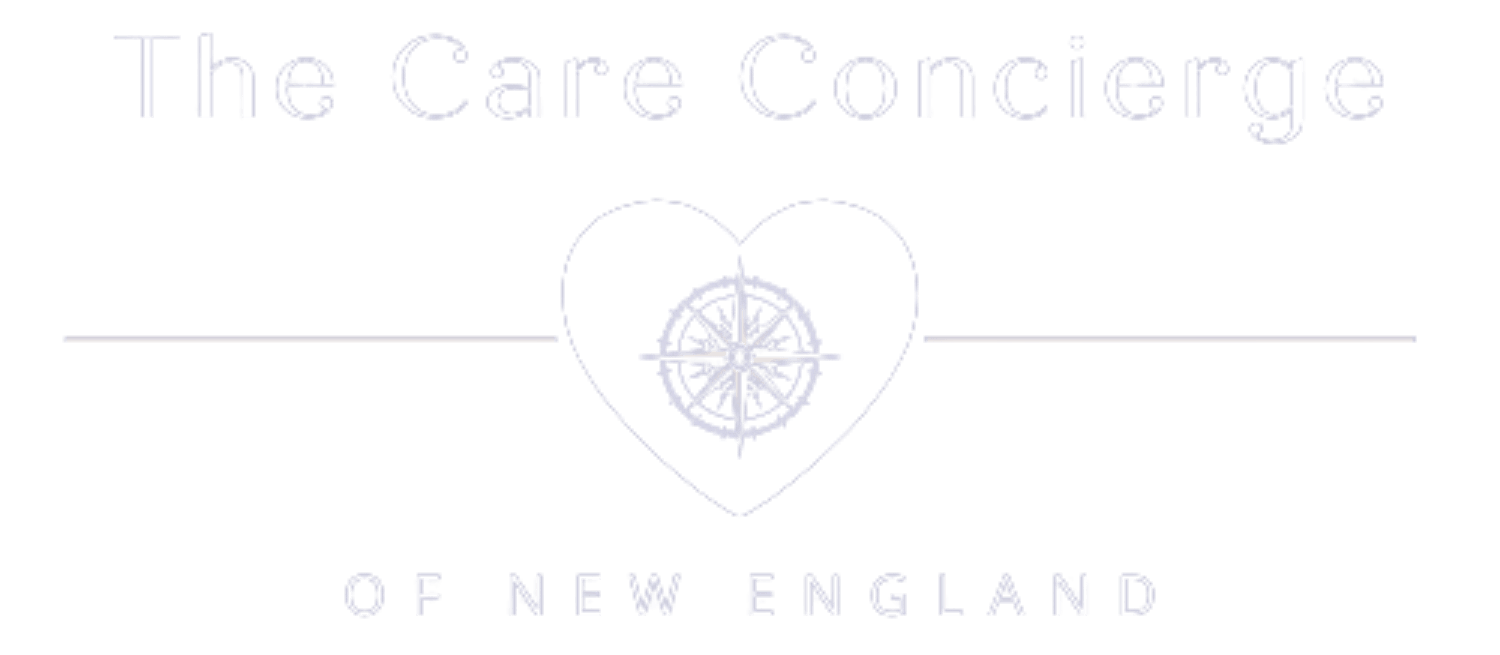
Let's explore the vital role memory care facilities play in the lives of those living with dementia. These specialized environments are designed not only to ensure the safety of dementia patients but also to enhance their quality of life through tailored therapeutic activities, experienced care staff, and a secure setting that fosters social engagement.
We'll discuss how memory care facilities differentiate themselves from traditional assisted living environments, the specific care strategies employed to support individuals with memory impairments, and the positive impacts on both patients and their families. This insightful overview aims to shed light on why choosing the right memory care facility is crucial for the well-being of dementia patients, providing them with the dignity, respect, and quality of life they deserve.
Understanding the Unique Needs of Dementia Patients in Memory Care Facilities
Dementia patients have unique needs that require specialized attention, thus making the choice of a memory care facility critically important. Memory care communities are designed with these individuals in mind, offering memory care services and environments that prioritize safety, stimulation, and support. Unlike a standard assisted living facility, a memory care unit integrates dementia care into every aspect of its offering, from the architectural layout to the daily activities provided.
Medical care is tailored to address not only the cognitive symptoms of dementia but also the physical health challenges that may arise. Family members can find solace in knowing their loved ones are receiving this specialized care, which is crafted to enhance the patient's quality of life. However, one of the considerations that families must keep in mind is the memory care cost, which can be significant due to the comprehensive nature of the services. Despite the expenses, the benefits of a dedicated environment where professional staff understand the complexities of dementia care are invaluable.
Creating a Safe and Secure Environment in Memory Care Facilities for Dementia Patients

Prioritizing Safety in the Right Memory Care Community
When families seek the right memory care community for their loved ones, safety is often their top concern, especially for memory care residents in the early stages of dementia. A well-designed memory care facility should provide a secure, yet homelike atmosphere that prevents wandering—a common behavior in individuals as the disease progresses—while also encouraging independence in daily activities. Key safety features include secured entrances and exits, alarm systems, and constant monitoring by health care providers to ensure the well-being of all residents.
Ensuring Proper Staff to Resident Ratio
A critical aspect of providing a safe environment in memory care facilities is maintaining an appropriate staff to resident ratio. This ensures that each memory care resident receives personalized attention and care. As a family member of someone in need of memory care, it's important to inquire about the facility's staffing levels, particularly for residents requiring more intensive, skilled nursing care. A higher staff to resident ratio means that health care providers can promptly respond to the needs of residents, whether those needs are medical or personal, and give more meaningful interaction and supervision as the disease progresses.
Adapting to the Needs of Residents as the Disease Progresses
Memory care facilities must be equipped to adapt their care and environment as a resident's condition changes, particularly from the early stages to more advanced stages of dementia. This includes transitioning from a focus on promoting independence and engagement to providing more intensive skilled nursing care that addresses the complex health challenges often faced in the latter stages. Incorporating adaptive strategies, such as flexible care plans and environmental adjustments, ensures that the facility can provide appropriate care through all stages of dementia, offering peace of mind to family members.
Considering Key Factors in Facility Design and Care
In the early stages of the decision-making process, a few factors should be considered by family members when choosing a memory care facility. These include evaluating how well the physical environment is designed to meet the needs of dementia patients, from simple navigational cues to prevent confusion, to specialized areas for therapy and socialization. Assessing how the right memory care community engages with residents through tailored activities and how it plans for health care needs as the disease progresses are crucial elements in providing a safe and secure environment for loved ones.
The Role of Specialized Staff Training in Memory Care Facilities for Dementia Care

The effectiveness of memory care programs largely hinges on the expertise and training of the staff. Memory care communities offer a structured environment specifically designed for individuals experiencing memory loss. However, the provision of these services requires more than just a well-designed space. It demands a team of specially trained caregivers who are equipped to handle the unique challenges associated with dementia care. This training ensures that memory care facilities offer not only a safe environment but also a nurturing one where individuals with dementia can thrive.
Specialized staff training covers a wide array of topics crucial for effective dementia care, including understanding the progression of the disease, communication techniques, behavior management, and emergency response. This comprehensive educational approach ensures that every caregiver is prepared to provide not only basic personal care but also to engage with residents in a manner that respects their individuality and promotes their mental well-being.
A key component of specialized staff training is learning how to create and maintain a structured environment that helps mitigate the symptoms of memory loss. This includes the organization of physical spaces to reduce confusion and agitation, developing routines that provide a sense of security and familiarity, and conducting specially designed activities that stimulate cognitive functions and foster social interaction.
Staff are educated on the importance of personal care, recognizing that every resident may have differing needs. This includes understanding the nuances of providing care while preserving the dignity and independence of individuals as much as possible, whether that involves assistance in a private room or within shared community spaces.
Specialized training in memory care communities is fundamental to providing the high level of care required by individuals with memory loss. It enables staff to not only ensure the day-to-day safety and physical well-being of residents but also to enhance their quality of life through empathy, understanding, and a personalized approach to care.
Tailored Therapeutic Activities for Dementia Patients in Memory Care Facilities

Memory care facilities offer a range of therapeutic activities specifically designed to meet the unique needs of individuals with memory impairment. These activities are meticulously crafted to not only provide enjoyment but also to stimulate cognitive abilities, support emotional health, and maintain physical wellness. Understanding the importance of such activities, memory care communities invest in creating a structured environment where every activity is an opportunity for positive engagement.
Brain Games and Cognitive Stimulation
Memory care covered activities often include brain games and cognitive exercises tailored to each resident's abilities. These may range from puzzles and memory cards to more advanced computer-assisted cognitive training programs. Staff members are trained to facilitate these activities, ensuring they are both challenging and achievable, thus promoting a sense of accomplishment rather than frustration.
Everyday Activities and Life Skills
In memory care, compare the focus of everyday activities to what you might find in adult day centers and you will notice a significant difference. Memory care facilities emphasize the maintenance of life skills and encourage participation in everyday activities such as meal preparation, gardening, or simple household tasks. This approach supports a sense of normalcy and independence, with staff members always on hand to assist as needed while ensuring adequate nutrition and safety.
Creative and Expressive Therapies
Art, music, and speech therapy are integral components of a comprehensive care plan, offering channels for expression and communication that transcend verbal abilities. Family caregivers are often amazed at the capacity for creativity and joy these sessions bring to their loved ones. Facilities provide materials and skilled instructors to facilitate these sessions, making them accessible to all residents, regardless of their stage of dementia.
Physical and Social Activities
Memory care facilities understand the importance of maintaining physical health and social connections. Tailored exercise programs, including walk clubs and gentle stretching classes, cater to the physical capabilities of the residents. Social activities, from group meals to celebrations, ensure that individuals remain connected to their community, helping to combat feelings of isolation.
Specialized Support Services
Memory care communities provide comprehensive services that address all aspects of a resident's well-being, including managing medication, scheduling medical appointments, and offering speech therapy. These services ensure that families pay for a full suite of care that addresses the specific needs of dementia patients. By keeping families informed and involved in their loved one's care plans, memory care facilities foster a cooperative and supportive care environment.
Nutritional and Meal Services
Adequate nutrition is fundamental in supporting the health of individuals with dementia. Memory care facilities offer specialized meal services, ensuring meals are nutritious, easy to eat, and cater to the specific dietary needs of each resident. Staff members assist with meal times, turning them into opportunities for social interaction and engagement.
Keeping Families Informed
Communication with family caregivers is a keystone of effective memory care. Facilities strive to keep families informed about their loved ones' progress, changes in their condition, and any adjustments to their care plan. This transparency helps families feel connected and reassured that their loved ones are receiving the same services, care, and attention they would provide at home.
Through these meticulously designed and tailored therapeutic activities, memory care facilities strive to enhance the quality of life for individuals with dementia, offering more than just healthcare but a supportive, engaging community where every day brings moments of joy and accomplishment.
The Importance of Cognitive Stimulation Programs in Memory Care Communities for Dementia Patients

Cognitive stimulation programs are pivotal in the therapeutic landscape of memory care units, targeting the unique needs of individuals experiencing cognitive impairment, including those in the early stages of dementia. These programs are meticulously designed to engage residents in activities that stimulate cognitive functions, aiming to slow the progression of dementia symptoms and improve the quality of life.
Tailored to the Individual
Most memory care communities prioritize personalization in their cognitive stimulation initiatives, recognizing that each resident, whether they are in a semi-private room or have their own space, has a unique set of needs and abilities. Activities are tailored to cater to these diverse requirements, ensuring that each person can participate in a meaningful way, regardless of the severity of their impairment.
Enhancing Cognitive Abilities
For residents, particularly those in the early stages of dementia, engaging in cognitive stimulation programs can lead to noticeable improvements in memory, attention, and problem-solving skills. Memory care units are equipped with a variety of tools and resources to facilitate these programs, ranging from traditional puzzles and memory games to innovative, technology-assisted cognitive exercises.
Fostering Social Connections
Aside from the cognitive benefits, these programs offer the invaluable advantage of enhancing social interaction among residents. Most memory care communities design activities that encourage group participation, creating spaces where individuals can connect, share experiences, and support one another. This aspect of cognitive stimulation is vital, as it combats isolation and promotes a sense of community within the facility.
A Foundation for Holistic Care
Ultimately, cognitive stimulation programs are a fundamental component of the holistic care approach adopted by memory care communities. They complement physical, emotional, and social care initiatives, contributing to a comprehensive care model that addresses all aspects of a resident's well-being. For individuals with dementia, especially those in the early stages of living in a semi-private room experiencing cognitive impairment, these programs offer hope, dignity, and a better quality of life.
Through targeted cognitive stimulation, memory care units empower residents, providing them with opportunities to maintain and even enhance cognitive functions. This focus underscores the crucial role of such programs in supporting individuals with dementia, affirming the commitment of most memory care communities to delivering care that goes beyond the basics, aiming for the highest possible quality of life for each resident.
Enhancing Quality of Life Through Social Engagement in Memory Care Facilities

Priority on Socialization
Social engagement in memory care facilities is not merely a supplemental activity; it's a core component of enhancing the quality of life for those with dementia. Recognizing the profound impact that social isolation can have on cognitive decline, memory care communities actively promote an environment where residents are encouraged to interact, socialize, and participate in group activities. This proactive approach to fostering social connections plays a crucial role in maintaining the emotional and psychological well-being of residents.
Structured Social Programs
Memory care facilities offer a wide range of structured social programs designed to meet the diverse interests and capabilities of their residents. These may include music and art therapy sessions, group exercise classes, communal gardening projects, and memory-sharing circles. Each activity is carefully curated to ensure that all residents, regardless of their cognitive abilities, can engage in meaningful social interactions, thus preventing feelings of loneliness and isolation.
Encouraging Family Involvement
Family involvement is another pillar of social engagement in memory care communities. Facilities often schedule regular family nights, community events, and holiday celebrations where families are invited to participate alongside their loved ones. This inclusion not only reinforces the bond between residents and their families but also integrates the larger community into the fabric of the memory care facility, creating a more homelike and supportive environment for everyone involved.
Personalized Interaction Plans
Acknowledging that every resident has unique preferences and levels of social comfort, memory care facilities sometimes develop personalized interaction plans. These plans are tailored to each individual's interests, encouraging participation in social activities that they find most enjoyable and fulfilling. By personalizing social engagement, memory care communities can better meet the needs of their residents, enhancing their overall quality of life through connectivity and companionship.
Through these various initiatives, memory care facilities strive to create a vibrant social environment that enriches the lives of their residents. The emphasis on social engagement demonstrates a deep understanding of the vital role human connection plays in the well-being of individuals with dementia, reaffirming the commitment of memory care communities to provide not just care, but a place where residents can thrive.
Nutrition and Meal Planning Considerations for Dementia Patients in Memory Care

Nutrition is a key factor in the overall well-being of dementia patients residing in memory care facilities. A balanced and thoughtful diet can significantly influence cognitive function, mood, and physical health. Memory care communities, therefore, place a strong emphasis on meal planning and dietary considerations, ensuring that meals are not only nutritious but also cater to the specific needs of dementia patients. Special attention is paid to creating menus that are rich in omega-3 fatty acids, antioxidants, and vitamins which are known to support brain health.
Considerations for dietary restrictions, swallowing difficulties, and personal preferences are meticulously integrated into meal planning. Facilities also recognize the importance of mealtime as an opportunity for social interaction and strive to make dining experiences enjoyable and conducive to building community among residents. With careful attention to nutrition and meal planning, memory care communities aim to enhance the quality of life and health outcomes for those in their care.
Connect with Our Care Concierge Team Today
If you or your loved one is navigating the challenges of dementia and you're seeking a community that truly understands and caters to these specific needs, we invite you to reach out to the Care Concierge of New England.
Our dedicated team is on hand to answer any questions you may have and to guide you through the options available for ensuring the best possible care and quality of life.
Contact us today
to learn more about how we can support you and your family during this important transition. Your peace of mind is our priority.
OPENING HOURS
- Mon - Fri
- Open 24 Hours
- Sat - Sun
- Appointment Only
©2021 by The Care Concierge of New England. Web Services by
LevelUP Digital Solutions
The Care Concierge of New England LLC
9 Oaklawn Rd
North Smithfield, RI 02896

